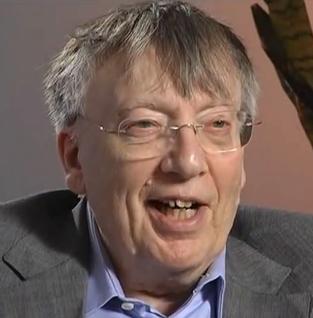A Quote by Jack Kemp
When democratic governments create economic calamity, free markets get the blame.
Related Quotes
Markets are a social construction, they're made from institutions. We in a democratic society create markets, we constitute markets, we bring them into existence, and we shouldn't turn markets over to a narrow group of people who regulate them and run them in their interests, rather they should be run democratically for the common good.
Part of my advantage is that my strength is economic forecasting, but that only works in free markets, when markets are smarter than people. That's how I started. I watched the stock market, how equities reacted to change in levels of economic activity, and I could understand how price signals worked and how to forecast them.
Governments are based pincipally on force and deception. Democratic governments are based chiefly on deception, other governments on force. And democratic governments, if you get too uppity, give up on the deception and resort to brute force, as a lot of us found out in the sixites. Those who didn't find out in the sixites will find out in the near future because we're going to have a rerun.
Everyone talks about freedom. All around the world different people, different races, different countries are fighting for freedom. But what is freedom? In America we speak of living in a free country. But are we really free? Are we free to be who we really are? The answer is no, we are not free. True freedom has to do with the human spirit-it is freedom to be who we really are. Who stops us from being free? We blame the government, we blame the weather, we blame our parents, we blame religion, we blame God. Who really stops us from being free? We stop ourselves.
Free trade holds much of the blame for continued international conflict. Markets are said to possess wisdom that is somehow superior to man. Those of us in business who travel in the developing world see the results of such western wisdom and have a rumbling disquiet about much of what our economic institutions have bought into.
Here we have the heart of the difference between Hayek and Keynes: one knew that markets work to give us the best of all possible worlds, while governments create and exacerbate malfunctions; the other imagined that governments were somehow capable of both perceiving and correcting malfunctions by means of the printing press, provided the right technocrats are in charge.
Markets are interested in profits and profits only; service, quality, and general affluence are different functions altogether. The universal, democratic prosperity that Americans now look back to with such nostalgia was achieved only by a colossal reigning in of markets, by the gargantuan effort of mass, popular organizations like labor unions and of the people themselves, working through a series of democratically elected governments not daunted by the myths of the market.
Now the masses of Latin America are electing governments they feel can take forward the democratic reforms of the last 20 years, and transform them into social and economic reforms. This is, I think, extremely important, because it also means that the left has abandoned the revolutionary solution proposed by Che Guevara and has taken the democratic path.

































